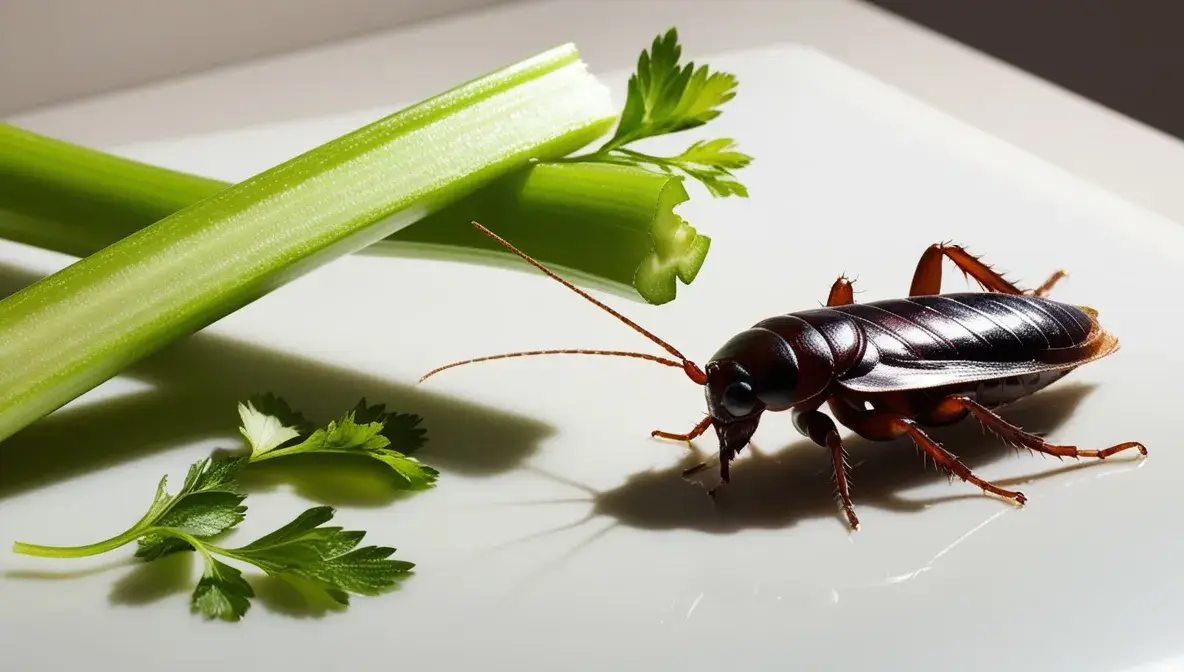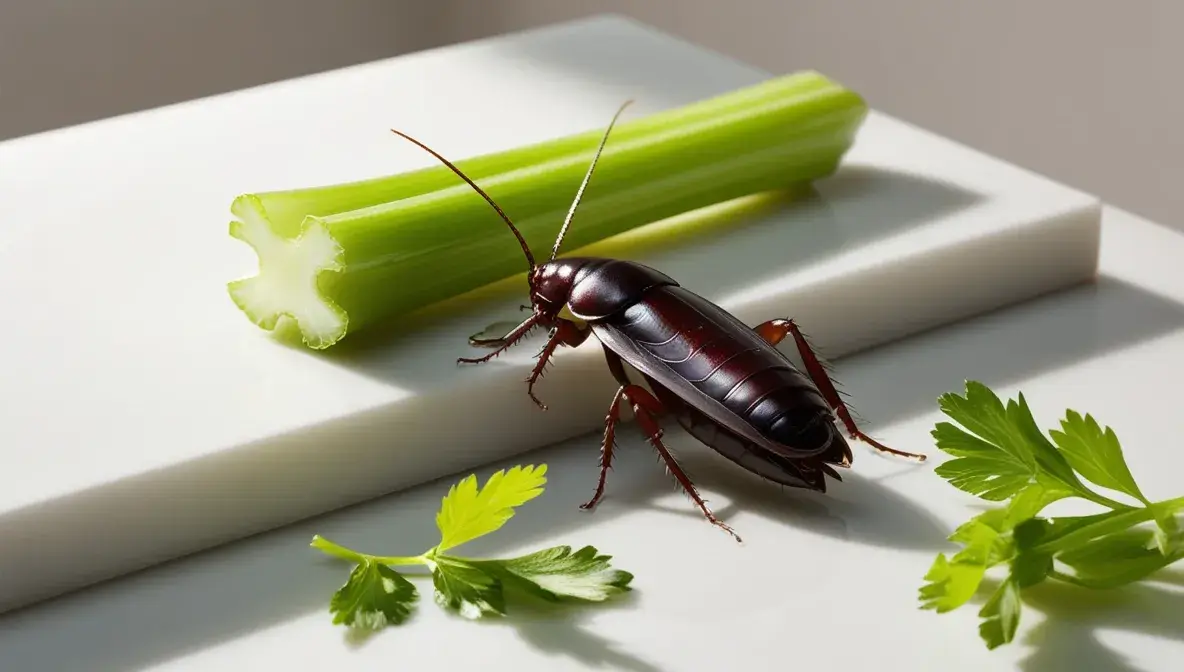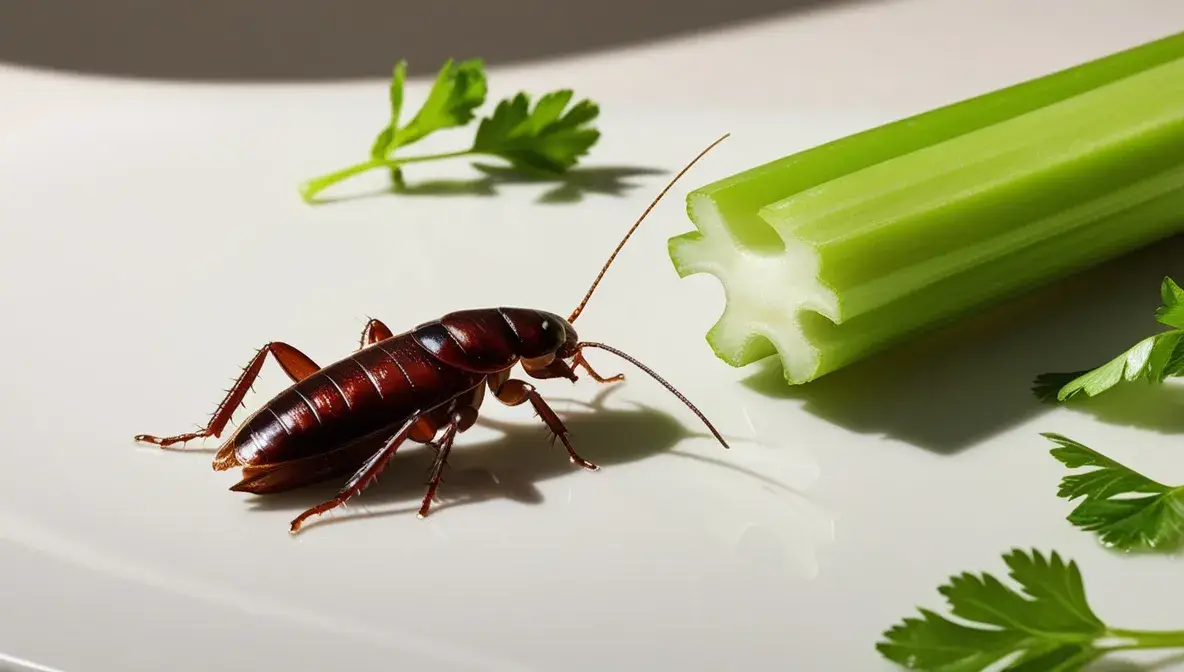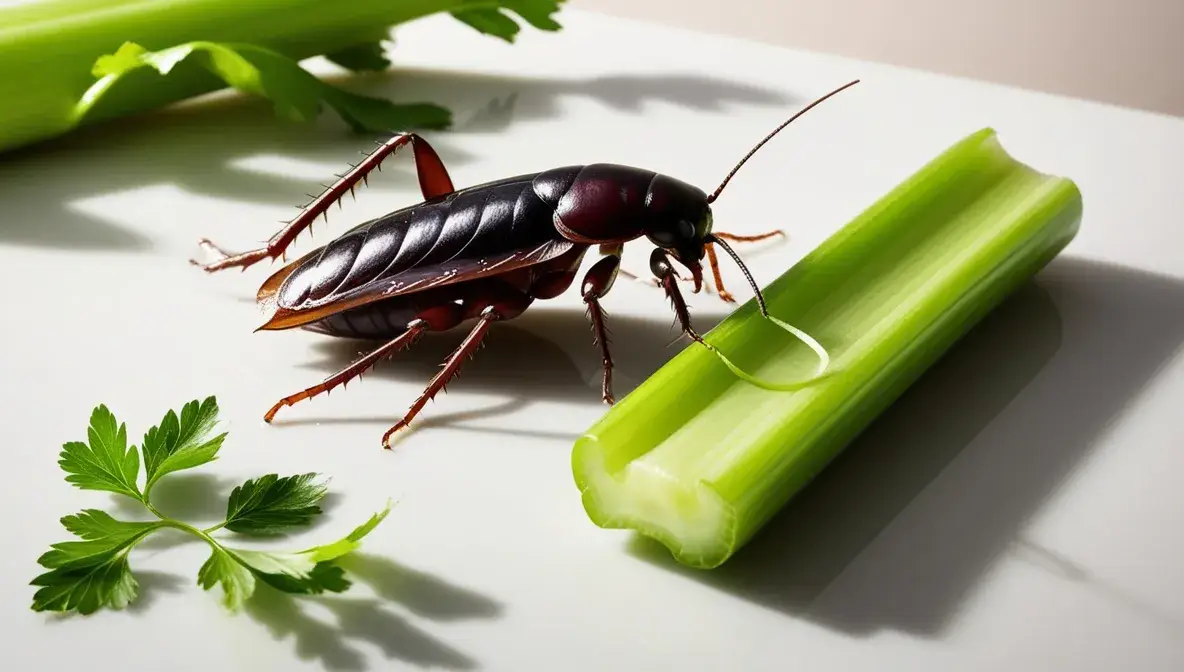When it comes to feeding Dubia roaches, many enthusiasts wonder: can Dubia roaches eat celery? As staple feeder insects for reptiles, ensuring their diet is both nutritious and safe is essential. Celery, a common household vegetable, often raises questions due to its high water content and low caloric value. This guide will dive deep into whether celery is a good choice for Dubia roaches, how it impacts their health, and what it means for the reptiles that consume them. Let’s explore everything you need to know to make informed decisions about feeding celery to your Dubia roaches.
Why Diet Matters for Dubia Roaches

Dubia roaches (Blaptica dubia) are widely regarded as one of the best feeder insects for reptiles like bearded dragons, leopard geckos, and other insectivorous pets. Their nutritional profile—rich in protein and low in fat—makes them a healthier alternative to crickets and mealworms. However, their diet directly affects the quality of nutrients they pass on to your pets.
This is why their food choices matter. A proper diet enhances their gut-loading efficiency, which means the reptiles consuming these roaches receive optimal nutrition. But how does celery fit into this picture?
Nutritional Profile of Celery
Before determining whether Dubia roaches can eat celery, it’s important to understand its nutritional composition. According to the USDA, one cup of raw celery (about 101 grams) contains:
- Calories: 14
- Water content: 95%
- Protein: 0.7 grams
- Carbohydrates: 3 grams
- Fiber: 1.6 grams
- Calcium: 40 mg
- Vitamin C: 3.1 mg
- Potassium: 260 mg
Celery is low in calories and protein but high in water and fiber. While it provides trace amounts of vitamins and minerals, it lacks the dense nutrients that Dubia roaches require for optimal gut-loading.
Can Dubia Roaches Eat Celery?
Yes, Dubia roaches can eat celery, but it should only be offered in moderation. Celery is not harmful to Dubia roaches; however, it is not an ideal primary food source due to its low nutritional density and high water content.
Why Celery Should Be Fed Sparingly
- High Water Content
Celery is made up of 95% water. While hydration is essential for Dubia roaches, excessive water content can lead to digestive issues, loose droppings, and potential mold growth in their enclosure. - Low Protein Content
Dubia roaches thrive on protein-rich diets, as protein is necessary for their growth, reproduction, and nutritional value. Celery, with only 0.7 grams of protein per 100 grams, does not meet their protein requirements. - Nutritional Imbalance
Feeding celery exclusively or in large quantities can result in imbalanced nutrition. Since Dubia roaches are feeder insects, this imbalance can negatively affect the reptiles relying on them for gut-loaded nutrients.
How to Safely Feed Celery to Dubia Roaches

If you choose to feed celery to your Dubia roaches, follow these steps to ensure their safety and health:
Step 1: Wash Thoroughly
Celery often contains pesticides and chemicals. Wash it thoroughly under running water or soak it for a few minutes in a mixture of water and vinegar to remove any harmful residues.
Step 2: Cut into Small Pieces
Cut the celery into small, manageable pieces. This makes it easier for the roaches to consume and reduces the chances of uneaten food rotting in their enclosure.
Step 3: Offer in Moderation
Offer celery as an occasional treat, not as a staple. Combine it with other nutrient-dense vegetables like carrots, sweet potatoes, or squash to create a balanced diet.
Step 4: Remove Uneaten Pieces
Celery’s high water content can cause it to spoil quickly in warm, humid enclosures. Remove any uneaten pieces within 24 hours to maintain cleanliness and prevent mold growth.
What Are Better Alternatives to Celery?

For optimal nutrition, focus on feeding your Dubia roaches vegetables and fruits that are high in protein, vitamins, and minerals. Here are some excellent alternatives to celery:
- Carrots: High in beta-carotene and fiber, carrots are a staple for Dubia roaches.
- Sweet Potatoes: Rich in carbohydrates and essential vitamins, they are great for gut-loading.
- Apples: Provide hydration and natural sugars; just remove seeds, as they contain cyanide.
- Zucchini: Low in water content and easy to digest.
- Leafy Greens (e.g., Collard Greens, Kale): Packed with calcium and other essential nutrients.
These foods not only enhance the health of Dubia roaches but also improve the nutrition of the reptiles that consume them.
Common Questions About Feeding Celery to Dubia Roaches
Can celery harm Dubia roaches?
No, celery is not toxic to Dubia roaches. However, overfeeding celery can lead to digestive issues due to its high water content and low nutritional value.
Can celery be used as a hydration source?
While celery contains a lot of water, it is better to provide a dedicated water source, such as water crystals or fresh fruits, to maintain proper hydration.
Does feeding celery affect reptiles consuming Dubia roaches?
Feeding celery in moderation is unlikely to have a significant impact. However, if celery is the primary food source for Dubia roaches, reptiles may receive fewer nutrients during gut-loading.
Benefits and Drawbacks of Feeding Celery to Dubia Roaches
Benefits
- Provides hydration due to its high water content.
- Easy to prepare and readily available.
- Contains small amounts of vitamins and minerals.
Drawbacks
- Lacks sufficient protein for optimal Dubia roach growth.
- Excessive moisture can lead to mold and digestive issues.
- Limited contribution to gut-loading efficiency.
Conclusion
In summary, while Dubia roaches can eat celery, it should only be offered occasionally and in combination with more nutrient-dense foods. Celery’s high water content and low protein make it unsuitable as a primary food source, but it can serve as a hydrating snack when prepared properly.
Feeding your Dubia roaches a balanced, protein-rich diet is crucial for their health and the reptiles consuming them. By incorporating a variety of vegetables and fruits, you can ensure your feeder insects provide maximum nutrition to your pets.
Want to learn more about proper Dubia roach care and feeding? Explore our comprehensive guides on Dubia roaches for expert tips and advice.
This blog post is designed to educate, engage, and empower readers to make informed decisions about feeding celery to their Dubia roaches.

Mark Manson is an expert blogger specializing in Dubia Roaches. He shares practical care tips, breeding insights, and feeding advice to help enthusiasts and reptile owners thrive.

